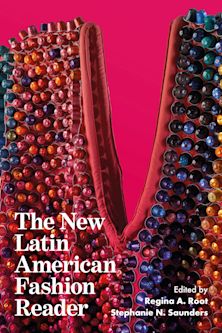- Home
- ACADEMIC
- History
- Latin American History
- Urban Guerrilla vs. Citizens Revolution
Urban Guerrilla vs. Citizens Revolution
The Ecuadorian Dilemma at the Turn of the Century
Urban Guerrilla vs. Citizens Revolution
The Ecuadorian Dilemma at the Turn of the Century
You must sign in to add this item to your wishlist. Please sign in or create an account
Description
Urban Guerrilla vs Citizens Revolution: The Ecuadorian Dilemma at the Turn of the Century examines how trauma and modernity affected the daily lives of Ecuadorian guerrilla activists. Utilizing oral histories and archival study, this book describes the lives of activists in the Ecuadorian guerrilla group ¡Alfaro Vive, Carajo!. Dr. Nicolas Buckley demonstrates not only how these AVC activist’s life stories reveal their traumas, but also how their traumas are proof that modern Ecuador is still anchored in its colonial past. Further, Dr. Buckley explores two identities that emerged in Latin America, the “mestizo” versus the “indigenous.”
Table of Contents
Introduction
Chapter 1: Theory and daily life in Latin America
Chapter 2: The experience of modernity
Chapter 3: Dreams of a mestizo youth
Chapter 4: Reggaeton or Citizen´s Revolution?
Epilogue: The indigenous rebellion of 2019. Crossing experiences between the activists and the oral historian
Conclusions
Bibliography
About the Author
Product details
| Published | 02 Oct 2023 |
|---|---|
| Format | Ebook (Epub & Mobi) |
| Edition | 1st |
| Extent | 168 |
| ISBN | 9781666941371 |
| Imprint | Lexington Books |
| Publisher | Bloomsbury Publishing |
About the contributors
Reviews
-
In comparison to guerrilla movements in other Latin American countries, ¡Alfaro Vive, Carajo! (AVC)—in English, "Alfaro Lives, Dammit!"—in Ecuador was relatively minor and short lived. Taking its name from former President Eloy Alfaro, a general who led a liberal revolution in 1895, the AVC first emerged in 1983. By 1986 state security forces had largely dismantled the group, killing many of its leaders and imprisoning and torturing many of its members. As with many other guerrilla movements, the AVC still lacks a strong synthetic study. Instead, there are only a number of often self-published narratives and memoirs that lack broad distribution. In this short book, which was originally published in Spanish, Buckley presents oral interviews he collected from the group’s former members during a seven-year residency in Ecuador. [The] book approaches the topic[s] from the perspective of cultural studies, emphasizing musings on modernity, especially as it relates to mestizo and Indigenous identities. Recommended. Faculty and professionals.
Choice Reviews
-
This is a wonderfully rendered work of historical recuperation. Buckley, with graceful style, captures both the hopes and fears that ran across the political spectrum in Ecuador. Invaluable.
Greg Grandin, Yale University
-
The current text brilliantly highlights AVC's political, social and cultural contributions, and assesses its greater impact within the problematics of modernity. It is without a doubt a welcomed document to the greater understanding of social reality in South America and the Andes.
Oswaldo Hugo Benavides, Ph.D and Independent Scholar
-
Part meditation on modernity, part reflection on the aging of revolutionary activism, part oral history collection, this readable volume on Ecuador’s Alfaro Vive Carajo offers the first systematic account of a unique if often overlooked guerrilla movement from Latin America’s Cold War.
Ernesto Capello, Macalester College

ONLINE RESOURCES
Bloomsbury Collections
This book is available on Bloomsbury Collections where your library has access.



































